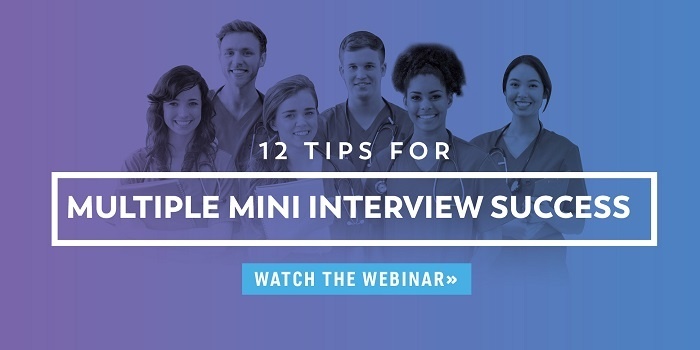
During the MMI, you’ll be evaluated by many different people at several different stations. Having multiple reviews and reviewers provides a more consistent way to evaluate applicants because schools have more data available from the evaluations provided by each person who observes you. They rate you based on how you interact with others—your process— and what you say—your content. To help you shine in this interview format, here are some of the criteria that adcoms specifically look for during the MMI:
• How you interact with and relate to others—Process
They are evaluating your facial expressions, body language, spoken and written communication skills, ability to collaborate as well as lead. While this list may seem long, you can collect a lot of information about a person in a 7-minute high pressure interaction. In a mock interview I provided for a student today, he held the expression of contempt—one side of his mouth pulled up in a half sneer—so frequently that I gently pointed it out to him. He was horrified and didn’t even realize what he was communicating through his expression. When I was director of the UC Davis School of Medicine Postbac Program and identified contempt in the expressions of applicants during interviews, I recorded it as a negative—especially when it was directed at the other applicants. A strong sense of superiority in a student doesn’t make for easy collaboration or mentorship.
• What you share—Content
You are the most powerful person in the room in an interview setting. With what you communicate, verbally, you are in control because you choose what to share. I recommend beginning and ending every interaction with gratitude—to set the tone. Focusing your energy on such positivity will help ensure that your interaction will go well.
Choosing your words carefully, being thoughtful about what you say, and thorough in thinking out loud through problems to find solutions are critical to receiving high ratings. If you say, “like,” every other word, start editinit out of your speech now; the sooner you begin to consciously decide how you want to present yourself and be perceived through what you say, the better. “Consciousness itself can bring qualitative change” as one of my favorite teachers says. In your content, the most important thing you can do is allow them to see how you think through problems. The adcom is deciding if they want to teach you medicine. Being transparent in your thought process will help them see that you are methodical (do not skip steps), thorough, and persistent in suggesting as many potential solutions as you can identify. Then you just may be the student they are looking for.
In bringing attention to your process and content, you can begin to strategize in all of the areas recommended to do your best at the MMI. Practice is the best way to prepare. For a mock MMI, you are welcome to contact me or one of my colleagues at Accepted. We would be delighted to assist you. The interview is my favorite part of the medical school application! Mocks provide so many opportunities for the applicant to gain insight from the experience and can lead to remarkable improvement.

Related Resources:
• The Ultimate Guide to Medical School Interview Success
• The Medical School MMI (Multiple Mini Interview) Day
• Not So Secret Secrets to Nailing the Medical School Interview
The post What the Adcom Looks For During an MMI appeared first on Accepted Admissions Blog.
from Accepted Admissions Blog
https://blog.accepted.com/what-the-adcom-looks-for-during-mmis/

No comments:
Post a Comment